Category: Features
-

Lit Come Follow Me: D&C 3-5
In the three sections covered in this week’s Come Follow Me lesson we go with Martin Harris from the 116 pages to being a witness, with a detour to Joseph Smith Sr. and what it means to serve God. While I haven’t found poems that mention the events associated with these sections, there are a…
-

“A messenger sent from the presence of God”
I’ve always been interested in knowing what all Moroni said to Joseph Smith during their first conversation. We have several accounts, both from Joseph Smith himself and from close associates like Oliver Cowdery, Orson Pratt, and Lucy Mack Smith of that visit, but all of them pick and choose what they discuss and all of…
-
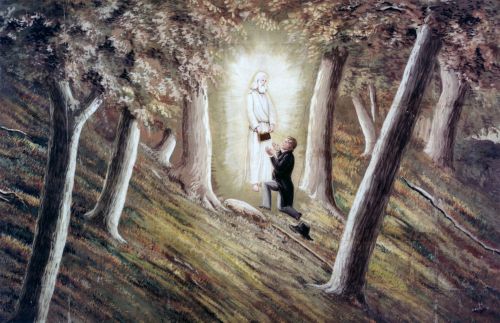
Lit Come Follow Me: D&C 2
This coming week’s Come Follow Me lesson discusses the events surrounding the coming forth of the Book of Mormon, including the visits of Moroni to Joseph Smith and the scripture’s translation and publication. Like other early events in the restoration, these events have been portrayed artistically many times, and will undoubtedly be portrayed many more…
-
Ein Ruf aus der Wüste: Foreword
The fierce desire harbored by the author of this booklet to fulfill an obligation that, he feels, a more than human power has imposed on him, as well as the heartfelt diligence with which he hopes to gladden his fellow men through the proclamation of those truths that fill his own heart with inexpressible joy…
-
Ein Ruf aus der Wüste: title page
The first non-English Latter-day Saint work, Orson Hyde’s Ein Ruf aus der Wüste, was published in 1842 in Frankfurt. The section recounting the life of Joseph Smith and the translation of the Book of Mormon has been translated multiple times and is available at the Joseph Smith Papers Project, in Dean Jessee’s 1989 The Papers…
-
Keith Erekson and the Scholars of Pajamalot
In a recent interview with Keith Erekson (the director of the Church History Library and a member of the editorial board of the Church Historian’s Press), Kurt Manwaring discussed a variety of topics, including the forthcoming publication of the William Clayton journals, the impact of Mark Hofmann on the Church History Library, and a moniker…
-

“Or, are they all wrong together?”
In this week’s chapter in the Come, Follow Me manual, one of the core areas of discussion is “why are there various accounts of the First Vision?” It’s an opportunity to explore the other accounts of the First Vision in a way that is potentially helpful to members of the Church.[1] The section mentions that:…
-

Lit Come Follow Me: D&C —Joseph Smith History 1
In the second lesson for this year, the Come Follow Me curriculum turns to Joseph Smith-History in order to include a brief look (over two lessons) at the origins of the restoration. For most Church members, the story is very familiar, and the principles taught are well-covered material. And, as you might imagine, the events…
-
“By mine own voice or by the voice of my servants”
Doctrine and Covenants section 1 is a fascinating document. Written in late 1831, it would chronologically fall in place right around section 67, but was intended as a preface for the compilation of Joseph Smith’s revelations known as the Book of Commandments. By extension, it later served as the preface for the Doctrine and Covenants.…
-
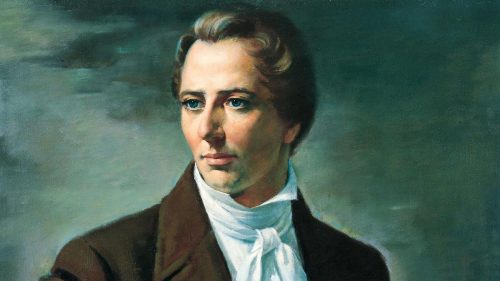
Lit Come Follow Me: D&C Section 1
The first section of the Doctrine and Covenants is meant to be its preface; an outline of both its reason for existing and its purpose. Presented at a conference of the Church in November, 1831, Section 1 was given and composed specifically because the church was compiling the revelations Joseph Smith had received and was…
-

New Series: Literary Come Follow Me D&C
I’m launching a new series of posts with poetry to go with the 2021 Come Follow Me lessons for the Doctrine and Covenants
-
The Most Significant General Conference Addresses of the 2010s: A Tentative List
With the 2010s a year behind us now, I thought it might be a good time to look back at general conference in the 2010s and consider which of the talks were some of the most significant addresses given during that period. I suspect that the Gospel Topics Essays will be the most significant documents…
-
What are the best resources to accompany your study of the Doctrine and Covenants?
We’re wrapping up the end of a year studying the Book of Mormon (whether at home or with our wards or branches) and soon will be turning our focus to the Doctrine and Covenants. J. Stapley at BCC recently ran a useful post discussing some approaches and resources we can use for studying the Doctrine…
-
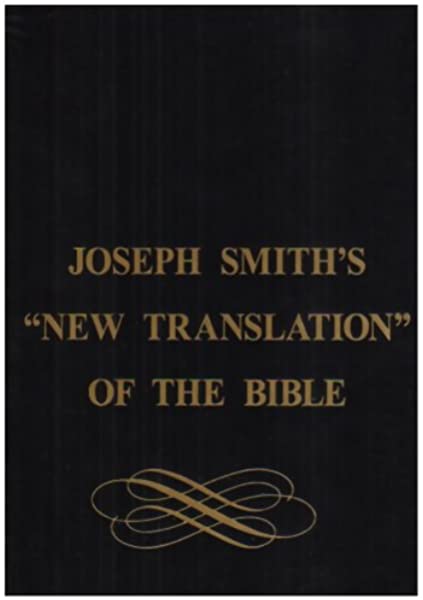
Kent P. Jackson on the Joseph Smith Translation
Joseph Smith’s translation projects have been a hot topic this year. Among many others, earlier this fall we did two posts that discussed the possibility that Joseph Smith relied on the Adam Clarke commentaries for some of the changes he made in the Joseph Smith Translation of the Bible. Recently, Kent P. Jackson (a retired…
-
Terryl Givens on 2nd Nephi
Terryl Givens—one of the foremost Latter-day Saint authors, theologians, and apologists of our time—recently penned a short volume on 2nd Nephi as part of the brief theological introductions to the Book of Mormon series the Maxwell Institute has been publishing this year. I wrote a review of the book earlier this year, but recently Kurt…
-

President Nelson’s Sources
What is it about our Church leaders that lends their speeches authority? While ultimately the belief that the men we sustain as prophets, seers, and revelators are in communication with God is what lends them the greatest amount of authority, I believe that there are other factors that shape how they are perceived and how…
-
President Nelson’s Favorite Topics and Statements, Part 4: The Plan of Salvation
For forty years before his call to the Quorum of the Twelve, Russel M. Nelson spent his career as a cardiovascular and thoracic surgeon. One aspect of his work that had a profound impact on him was that it “brought me into contact almost daily with seriously ill patients who faced the real prospect of…
-
President Nelson’s Favorite Topics and Statements, Part 3: The Family
Throughout my time studying President Nelson’s conference addresses, I observed that one topic that he came back to over and over is families. Whether it be decrying the fragmentation of families, encouraging men to pay more attention to their wives, or offering encouragement to women who are mothers, Russell M. Nelson has had a lot…
-
John Turner on Brigham Young
John Turner’s well-known biography Brigham Young: Pioneer Prophet (Harvard University Press, 2012) provides one of the most well-rounded and in-depth look at the second president of the Church of Jesus Christ of Latter-day Saints. It remains today one of the definitive biographies of an incredibly complicated man and leader. Recently, Kurt Manwaring sat down with…
-
President Nelson’s Favorite Topics and Statements, Part 2: The Church
Last year, the Church released the guidelines by which a committee was evaluating hymns and songs for inclusion in the next hymnbook and children’s songbook and a list of topics they wanted to see more hymns about. What surprised me as I studied President Russell M. Nelson’s general conference talks was how frequently the list…
-
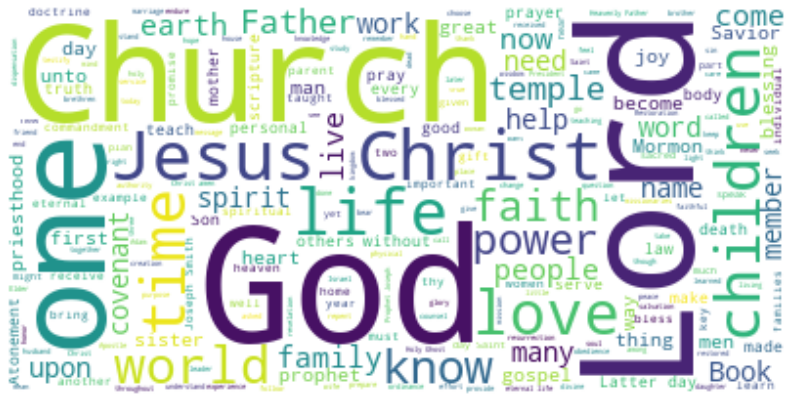
President Nelson’s Favorite Topics and Statements, Part 1: God and Power
This is the beginning of the second part of my analysis of President Russell M. Nelson’s general conference talks, focusing on his favorite topics and statements. In looking at what President Nelson talks about, I tried to take a few approaches to understand his favorite topics objectively. Approaches included word count analysis of his talks…
-
President Nelson’s Conference Addresses, Part 1: Introductory Comments
A couple years back—not long after President Russell M. Nelson was sustained as President of the Church of Jesus Christ of Latter-day Saints—Elder Neil L. Anderson spoke of a project his wife undertook: While my wife, Kathy, has known President Nelson personally for nearly three decades and has no question about his divine mantle, upon…
-
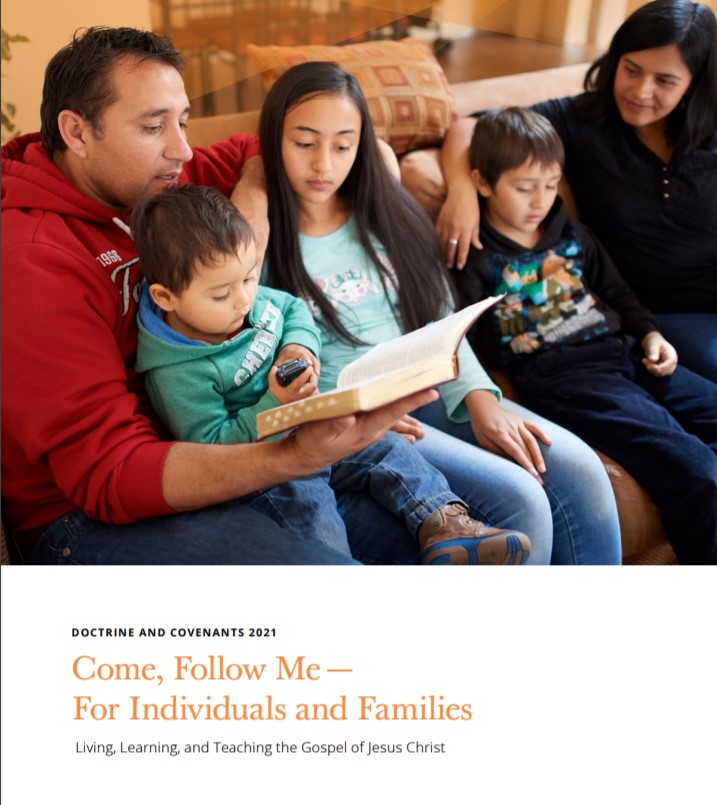
“Come, Follow Me” and The Family: A Proclamation to the World
The “Come, Follow Me” manuals for 2021’s course of study are available online now. Looking ahead to the next year, I have been curious to see if they were going to stick strictly to the scriptures related to the history of our modern dispensation (Doctrine and Covenants and parts of the Pearl of Great Price),…
-
Nephi and the Garden Tower: A Children’s Play
This week’s Come, Follow Me lesson covers the story of Nephi praying on a tower in his garden, drawing a crowd, and revealing facts about the murder of the chief judge that he could only know through revelation. As I read the lesson, I felt like the story was highly dramatic! So, for my family,…
-
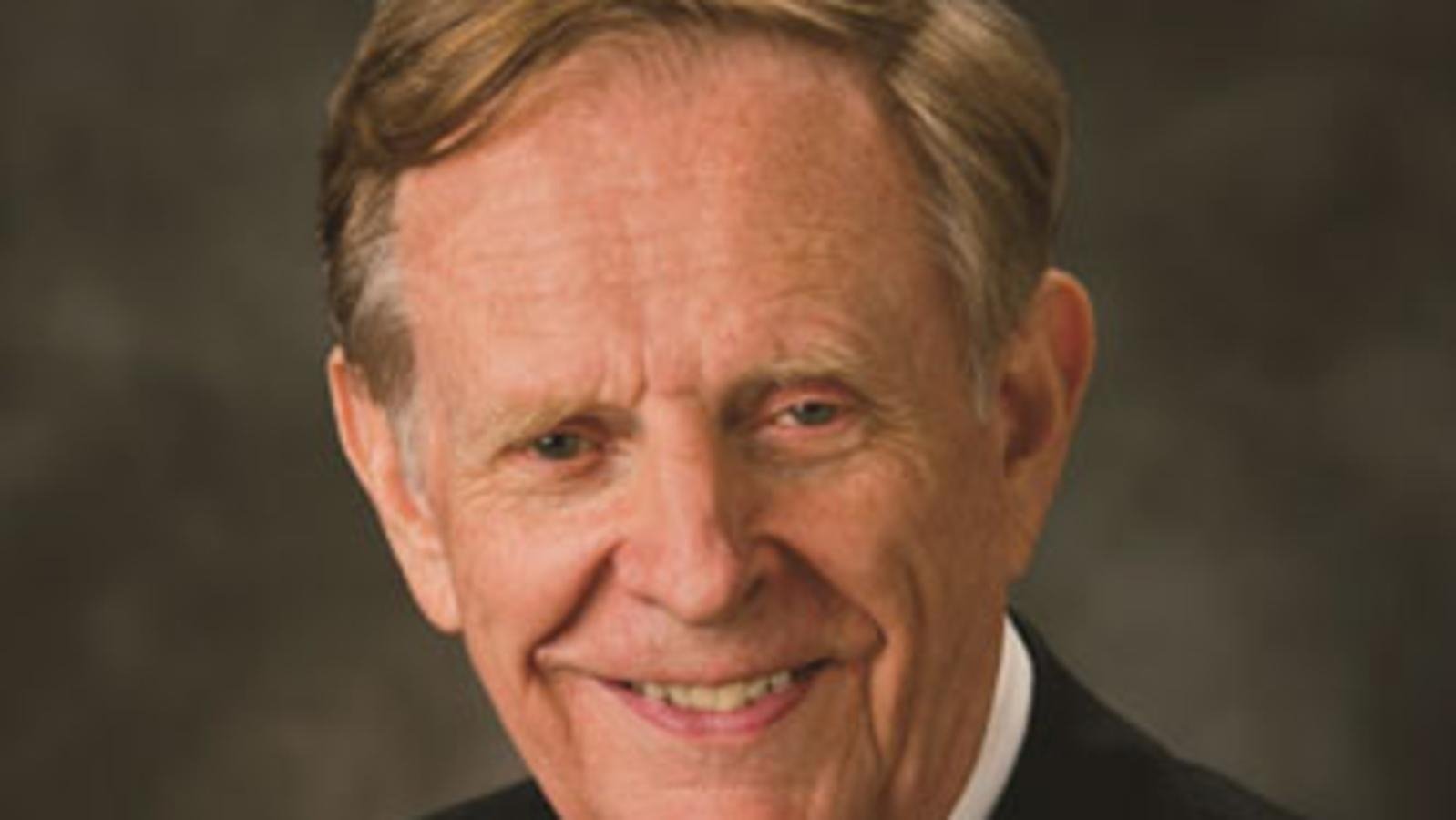
Thoughts on the Gold Plates
We round out the 10 questions interview series on Joseph Smith’s translation with a discussion between Richard L. Bushman and Kurt Manwaring about the gold plates. We’ve had a good run of interviews with scholars who have worked hard to examine the essential historical records surrounding Joseph Smith’s translation projects in order to find a…
-

Hebrew Studies and the Book of Abraham
We’re continuing our discussion of Joseph Smith’s translations and the recently-released volume Producing Ancient Scripture today, turning to the Book of Abraham in an interview with Matthew Grey. This is a co-post to Kurt Manwaring’s interview with Matthew Grey, where he discusses his research about the ways in which Joseph Smith’s study of Hebrew affected…
-

Translation and the Adam Clarke Commentary
Kurt Manwaring has continued his interviews focusing on Joseph Smith’s translations with a discussion with Thomas Wayment about the Joseph Smith Translation of the Bible. In the interview last week, some of the editors of recently-published volume Producing Ancient Scripture made a point of discussing the findings of Thomas Wayment and Hayley Wilson-Lemmón about the…
-
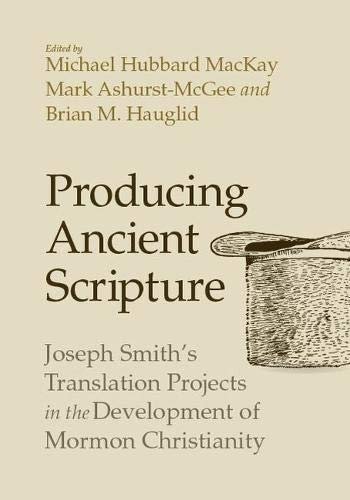
Joseph Smith’s Studies and Translations
It has been a big year for volumes that discuss Joseph Smith’s translation projects, with contributions ranging from Terryl Givens and Brian Hauglid’s The Pearl of Great Price: Mormonism’s Most Controversial Scripture last October, to William L. Davis’s Visions in a Seer Stone: Joseph Smith and the Making of the Book of Mormon this April,…
-

The Metaphysics of Translation
Understanding the nature of Joseph Smith’s translation efforts is an important part of understanding his ministry and the religions that have emerged from the early Latter Day Saint movement. Whether the Book of Mormon, the Joseph Smith Translation of the Bible, the Book of Abraham, or (as some might argue) the temple endowment ceremony, his…
-

A Small and Simple Quote
As I’ve been studying the “Come, Follow Me” material lately and talking about it with family, I’ve had a quote from Michael Crichton’s book Jurassic Park come to mind a few times. There are a few statements in this section of Alma that have brought it to mind. The first is found in Amulek’s words…
